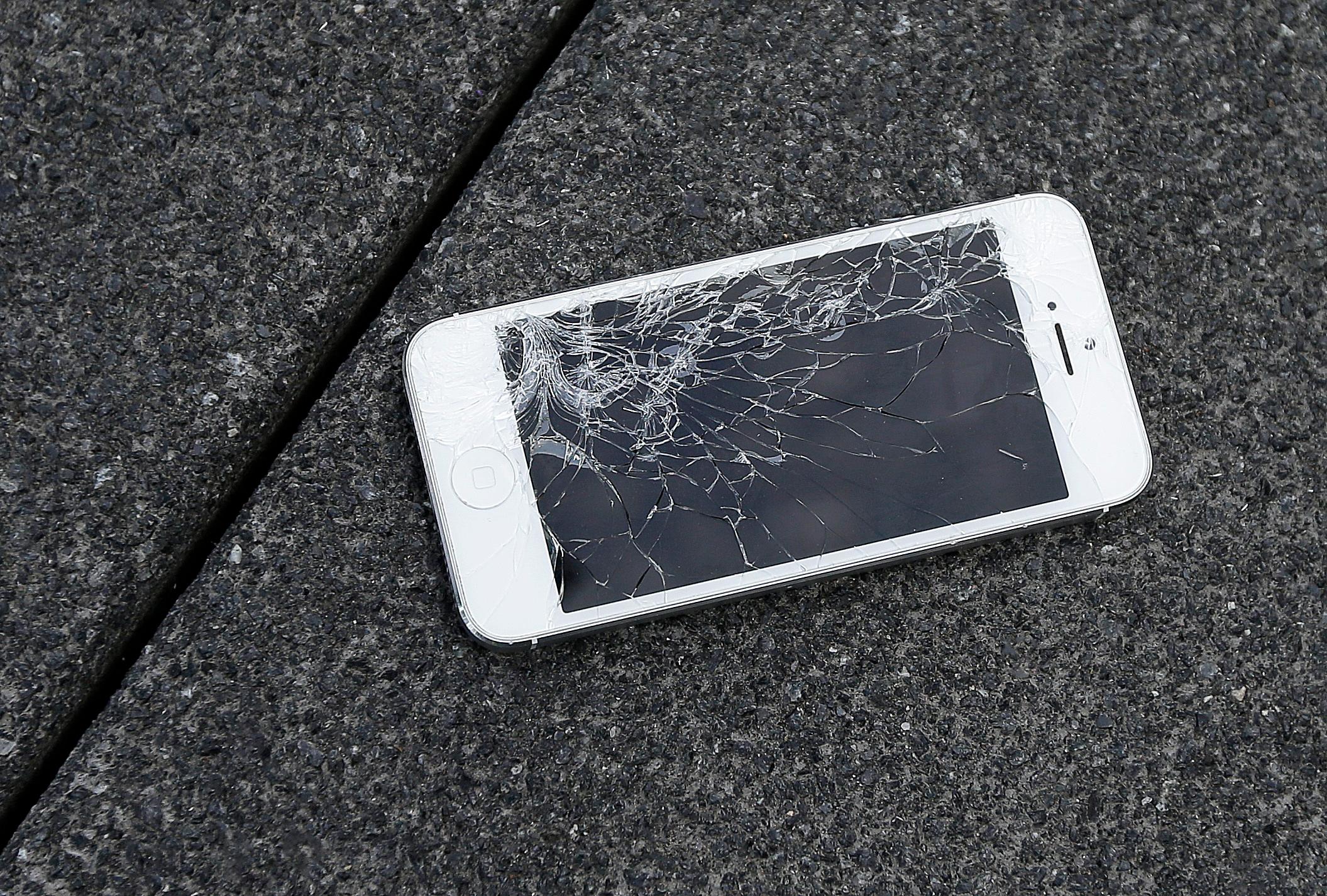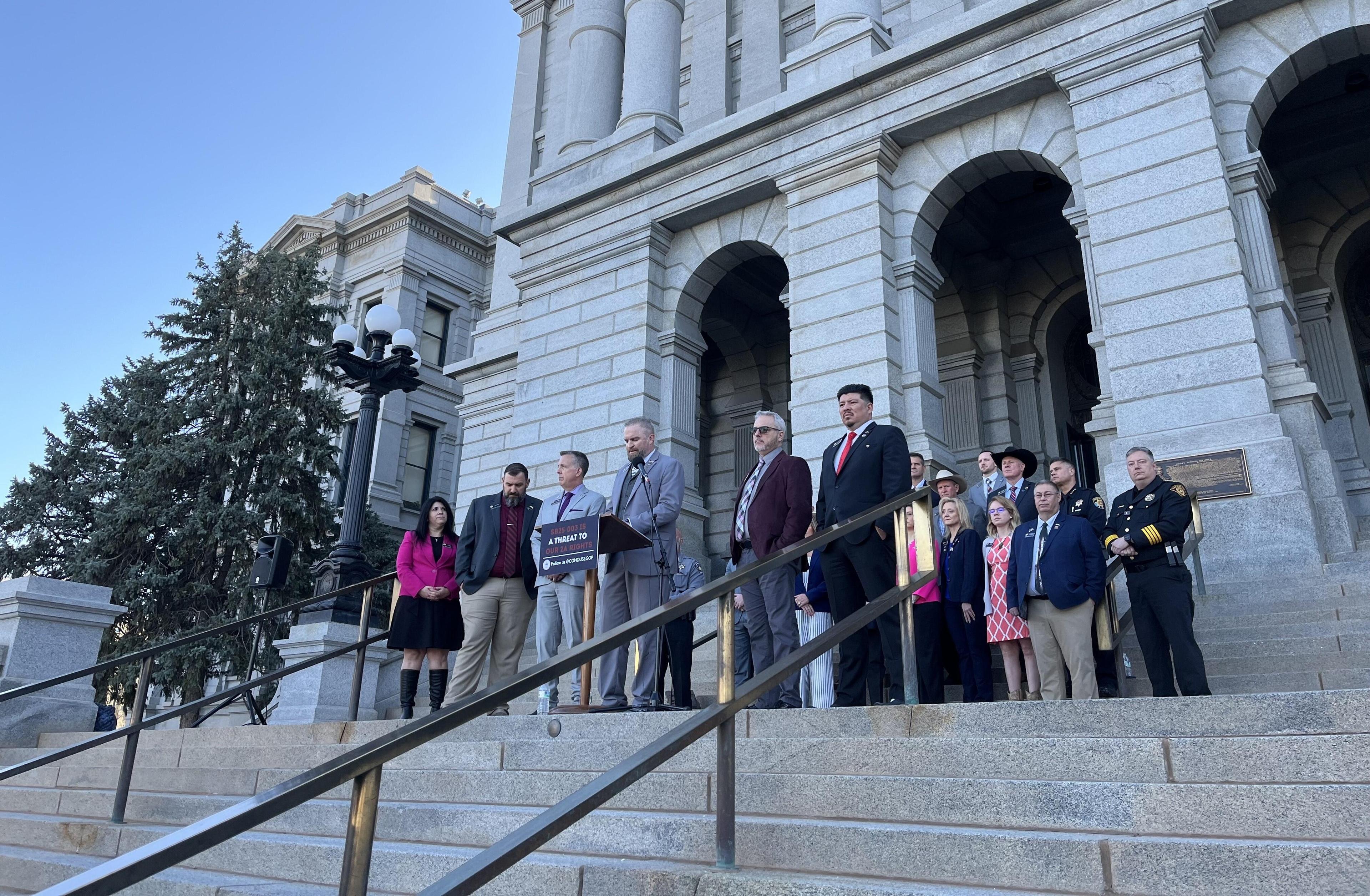
A new law is meant to give Coloradans more options to repair their busted cell phones, computers and other devices. Gov. Jared Polis signed HB24-1121 on Tuesday, calling it “one of the most expansive right-to-repair bills in the country.”
The new law says that device manufacturers such as Samsung and Apple must provide “documentation, software, data, and other tools” to device owners and independent repair shops to help them fix devices. Those materials have to be made available at the same prices the manufacturer charges to authorized repair providers.
“Imagine if every time your car broke down, the only option you had for repair was the dealer. That's not a world any of us want to live in,” said Sen. Jeff Bridges, a Democrat who is one of the bill’s sponsors, at an earlier committee hearing.
Opponents of the measure, including the telecom industry, argued that it would pose a security threat, among other critiques.
The law also includes new limits on the practice of “parts pairing,” in which manufacturers limit what kinds of replacement parts can be used in a device. The law says that manufacturers can’t prevent someone from “installing or enabling an otherwise functional replacement part” nor can they “display misleading alerts or warnings about unidentified parts,” among other limits.
The new law expands on the state’s previous “right to repair” policies, That law initially applied only to powered wheelchairs when it passed in 2022, and then was expanded last year to include agricultural equipment. The changes have been led in large part by Rep. Brianna Titone, a Jefferson County Democrat. Colorado has been among the leading states in the movement to give consumers more power over the fate of their equipment and devices.
The new law passed on largely partisan lines, with Democrats in support and Republicans opposed. The changes take effect Jan. 1, 2026.
The new law includes numerous exemptions. It does not apply to video game consoles, modems and routers, safety communications equipment, medical devices, electric car chargers, generators and storage systems, power tools, boats and some construction equipment, among others.
The Entertainment Software Association had pushed for the exemption for game consoles, arguing that including them would have made it easier to add chips that allow people to play pirated games.
The law also excludes motor vehicles, but independent mechanics and car owners already have similar rights under a 2014 memorandum of understanding.
The nonprofit CoPIRG — which advocates for consumer rights — said the law gave Colorado the “broadest repair rights” of any state.
“This action makes Colorado the Right to Repair state -- we will be able to fix more of our stuff than people in any other state,” executive director Danny Katz said in a written statement. Violating the law will be considered a deceptive trade practice.
At a committee hearing, opponents of the new law argued that it would endanger the security and reliability of devices by opening up the market to independent shops of dubious quality and making documentation and tools more widely available.
“The marketplace already provides a wide range of consumer choices for repair with varying levels of quality, price and convenience without the mandates imposed by this legislation. The marketplace continues to evolve and manufacturers will continue to make changes to address consumer demand while offering consumers safe and reliable repair options,” said Michael Blank, director of state legislative affairs for CTIA, the trade association for the wireless communications industry.
At the hearing, Katz argued the change was necessary because companies were using technology to take more control of the market and block people from making reasonable repairs.
“When you limit choice and you limit freedom to fix the stuff that you own, then that can lead to higher costs. It can also lead to more people deciding it's just not worth it and buying a whole new thing and … that can have a huge impact on our society from an environmental perspective as well,” he said.
The measure was also cosponsored by Sen. Nick Hinrichsen and Rep. Steven Woodrow, both Democrats.









